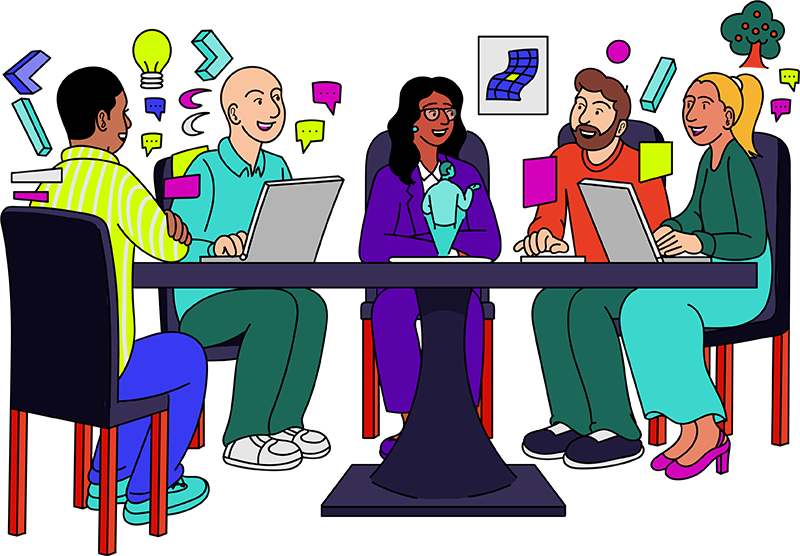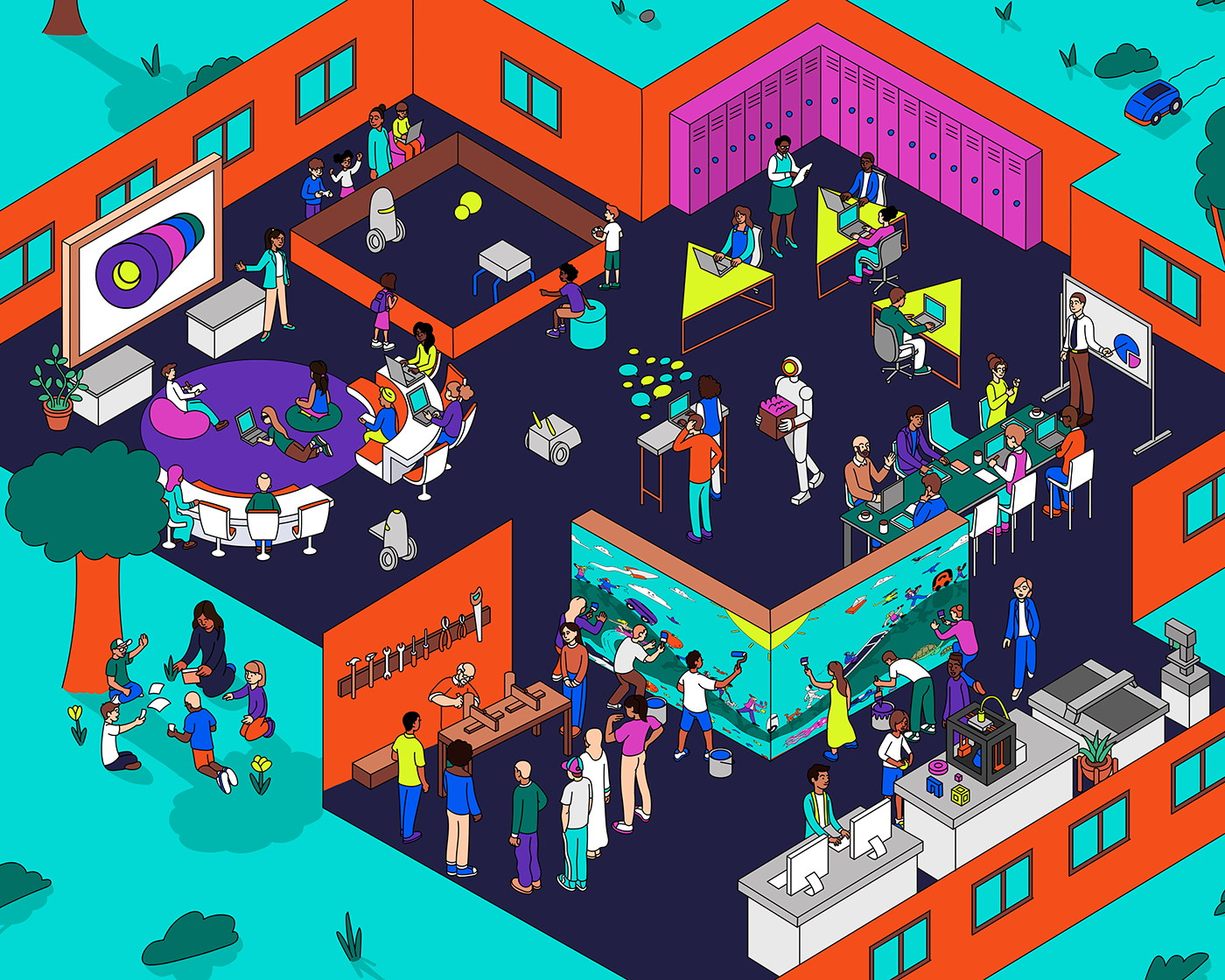aiEDU Rural & Indigenous Community Catalyst Program
The future of AI readiness isn’t something that can be changed from the top down.
It must be built from the ground up.
AI readiness starts with communities
The most impactful solutions for AI readiness don’t come from a single organization — they emerge from communities themselves.
Across rural and Indigenous communities, local educators and nonprofit leaders are already taking bold steps to ensure that their students, families, and schools are prepared for an AI-powered world. These local champions understand their communities’ strengths, challenges, and opportunities far better than anyone else.
At aiEDU, we believe that real, lasting change happens when communities lead the way. That’s why we’ve launched the aiEDU Rural & Indigenous Community Catalyst Program — not to “bring AI readiness” to these communities, but to invest in and amplify the work that’s already happening in them.
Through the Community Catalyst Program, aiEDU provides local organizations with the resources and capacity they need to scale their efforts in improving AI readiness, teacher empowerment, and systemic innovation.
The aiEDU Rural & Indigenous Community Catalyst Program is a grant initiative dedicated to expanding AI literacy and readiness in historically under-served communities.
The program provides funding to local nonprofits and grassroots organizations who are working to empower rural and Indigenous communities through AI Readiness.
With support from Google.org, aiEDU backs several project-based grants to organizations who are committed to fostering AI literacy, professional learning, student engagement, and policy development.
Our goal: Ensure that all students, educators, and communities are prepared for an AI-powered future, regardless of geography or access to resources.
Overview
Why does this matter?
AI is rapidly transforming the world by reshaping jobs, education, and daily life. But many rural and Indigenous communities still lack access to AI literacy programs that can equip them with the skills needed to thrive.
Through the Community Catalyst Program, we’re aiming to close that gap by funding projects that:
Support educators with professional learning and learning communities on AI readiness.
Develop AI literacy curricula tailored for rural and Indigenous students.
Host community convenings to foster collaboration and advocacy.
Include parents and communities in conversations of what AI is and how it’s changing the way we’ll live, work, and thrive in the future.
Our Community Catalysts: Their community, their investments in AI Readiness
aiEDU is proud to partner with organizations across the U.S. — from rural Kentucky to Hawaii — to build AI Readiness.
Here’s a summary of the Fall 2025 grantees and how they’re investing in their communities’ ability to navigate a future where AI is everywhere.
Capital Region ESD 113 (WA): Serving five rural counties and one Tribal Compact School, ESD 113 will deliver targeted professional learning, community feedback integration, and district-level AI policy development to support AI Readiness across the region.
CAST, Inc. (MT): Partnering with Boys and Girls Clubs in Montana, CAST will deliver statewide educator workshops, launch a virtual professional learning community, and co-create an "AI Playbook" to guide inclusive afterschool instruction.
Central Indiana Educational Service Center (IN): This initiative will support rural district leaders and educators with strategic coaching and sustained implementation of AI integration plans using CIESC's District AI Strategic Planning Framework.
CESA 4 (WI): The LIFToFFS initiative blends AI with social-emotional learning and inquiry-based instruction to develop future-ready classrooms and equip rural educators and students with the tools to thrive in an AI-powered society.
East Central ESC of Indiana (IN): Will lead regional convenings and help guide AI policy and planning support for rural districts in Indiana.
IndigiGenius (Makah & Lakota): A Native-led nonprofit advancing Indigenous sovereignty in AI education, IndigiGenius will co-design AI literacy strategies that are community-informed and culturally grounded.
Kentucky Educational Development Corporation (KY): Serving 80 rural and Appalachian districts, KEDC will provide hands-on AI training, peer networks, and educator-led implementation strategies to boost workforce readiness.
Krause Center for Innovation (CA): Combining asynchronous AI courses with live professional learning, this program will serve educators across California through deep learning and community engagement focused on local AI literacy needs.
Mendocino County Office of Education (CA): This pilot will create a Community of Practice to co-develop ethical and equitable AI integration tools for rural educators across Mendocino County.
NCW Tech Alliance (WA): Through summits, a skills challenge, and an "AI in Action" series, this initiative will train educators and students from five rural counties in North Central Washington.
Port Gamble S'Klallam Tribe (WA): Hosting intergenerational workshops and hands-on AI events, this project will center Native family literacy and local applications of AI for cultural and educational empowerment.
Red Wing Public Schools (MN): Red Wing educators will lead AI integration efforts that combine foundational training with culturally relevant lesson design.
Montana Afterschool Alliance & School Services of Montana (MT): This statewide initiative will foster AI literacy across Montana's rural and Indigenous communities through local convenings and professional learning sessions.
The Rural Alliance (WA): Focused on superintendent leadership, this project will equip rural districts with policy tools and training to scale responsible and equitable AI adoption.
West Sound STEM Network (WA): Four regional STEM networks will partner to expand AI education through professional development, community engagement, and cross-regional collaboration.
Tribal Education Departments National Assembly (TEDNA, OK): The "AI Sovereignty" initiative will build intertribal PLCs and co-create a Tribal AI Readiness Playbook to support sovereign, culturally aligned curriculum development.
Ulu Lāhui Foundation (HI): ULF will co-create AI curricula with Native Hawaiian educators, offering professional development in both English and ʻŌlelo Hawaiʻi and expanding culturally grounded AI education statewide.
YouCubed at Stanford University (CA): Partnering with the Yukon Koyukuk School District, this initiative will integrate community-based data science and ecological inquiry into AI Readiness learning experiences for rural and Indigenous students.



